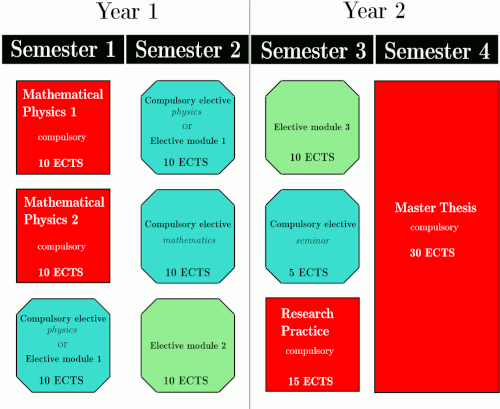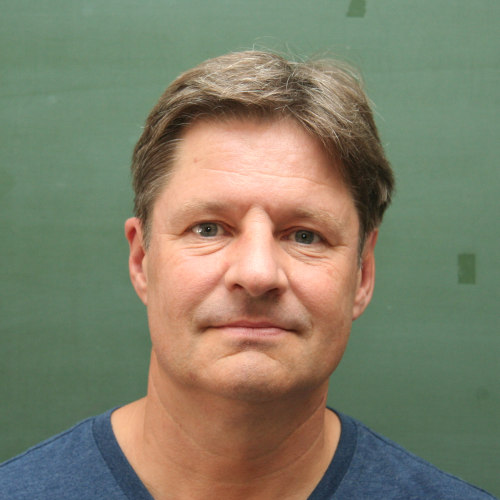In the 1st semester of the programme (Year 1) you will start with the compulsory modules Mathematical Physics 1 and Mathematical Physics 2, which form the basis of the courses and seminars offered in the rest of the programme. You will learn tools from mathematics and physics that are needed for the later, more advanced and specialized modules.
The structure of the programme allows for a high degree of flexibility and accommodates to individual preferences in the choice of elective modules. In addition to the wide range of modules offered in mathematics and theoretical physics, you can take advantage of an extended range of elective modules from meteorology (data assimilation or numerical weather prediction and climate modelling) to computer science (neuro-inspired information processing, artificial neural networks and machine learning, visualization, graphs and biological networks).
In the 3rd semester (Year 2), you will do the module Research Practice, where you will learn how to do research and presentations. The 4th semester (Year 2) is devoted to your master thesis.


